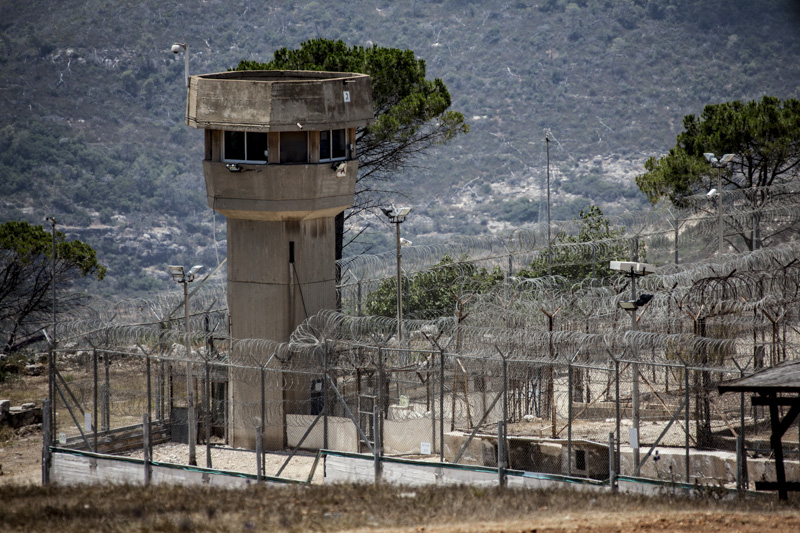Urgent petition filed with Israeli Supreme Court calls for cancellation of coronavirus emergency regulations banning prisoners from meeting with lawyers, family
Attorney Abeer Baker, Adalah – The Legal Center for Arab Minority Rights in Israel, Addameer Prisoner Support and Human Rights Association, and the prisoner Kafri Mansour together filed an urgent petition to the Israeli Supreme Court this morning, Thursday, 26 March 2020, against emergency regulations enacted in the shadow of the coronavirus crisis preventing lawyers and family members from meeting with prisoners being held in Israeli detention.

A 2016 file photo of Israel’s Damun prison.
According to the new regulations imposed on 15 March 2020, the Israeli public security minister, at the recommendation of the Israel Prison Service (IPS) director or the Israeli police commissioner, may ban visits with prisoners and detainees, and can limit prisoners’ consultation with a lawyer only by telephone, which he did.
In addition to the harm caused by the regulations to all prisoners held in Israeli facilities, they are particularly stringent with individuals designated by Israel as “security prisoners” – overwhelmingly Palestinians from the Occupied Palestinian Territory (OPT), numbering around 5,000. The emergency regulations allow these prisoners to consult by phone with their attorneys only when a court hearing on their case is slated to be held during the emergency period. While they are also banned from family visits, the result is that “security prisoners” will be banned from any contact with the outside world and will thus be prevented to report to families or lawyers about violations of their rights inside prisons.
The petition describes, for example, a telephone conversation between co-petitioner attorney Abeer Baker and a prisoner Israel’s Ofer prison, which was broadcast via loudspeakers in front of prison guards and other inmates.
Adalah Attorney Aiah Haj Odeh argued in the petition that, while there is no disputing the IPS's duty to ensure the health of prisoners and detainees, the emergency regulations banning visits overwhelmingly and disproportionately violate the prisoners’ rights and therefore must be repealed. The regulations also significantly harm the rights of juvenile prisoners, eliminating their right to visits by attorneys and family members even though this right is enshrined in Israeli law.

Palestinians protest outside of Israel’s Megiddo prison in 2017 in support of inmates’ rights. (Archive)
The petitioners further maintain the emergency regulations constitute a disproportionate violation of constitutional rights. In addition to the violation of the right to counsel, the regulations also violate the right to due process, access to the courts, the constitutional right to dignity and equality, and attorney-client privilege.
The petitioners also stressed that the Israel government has imposed the ban without any legal authority and it must therefore be rescinded for that reason as well.
Article 39(d) of Israel’s Basic Law: The Government (2001) explicitly states that “Emergency regulations may not prevent recourse to legal action, or prescribe retroactive punishment or allow infringement upon human dignity.” The Israeli government is not authorized, therefore, to implement such emergency regulations.
The petitioners call on the Israeli Supreme Court to cancel the regulations or, alternatively, enable prisoners to conduct telephone conversations with family members and attorneys while preserving their confidentiality and privacy.
Adalah Attorney Aiah Haj Odeh further commented:
CLICK HERE to read the petition [Hebrew]
CLICK HERE to read Emergency Regulations 8399 [Hebrew]
CLICK HERE to read Emergency Regulations 8384 [Hebrew]
Related Press Releases:
- CORONAVIRUS: Adalah, Joint List petition Israeli Supreme Court against emergency regulations that allow Shin Bet security service to track citizens’ cellphones
- CORONAVIRUS: Following Adalah’s petition, Israeli Supreme Court issues interim injunction limiting security service’s tracking of cellphones















